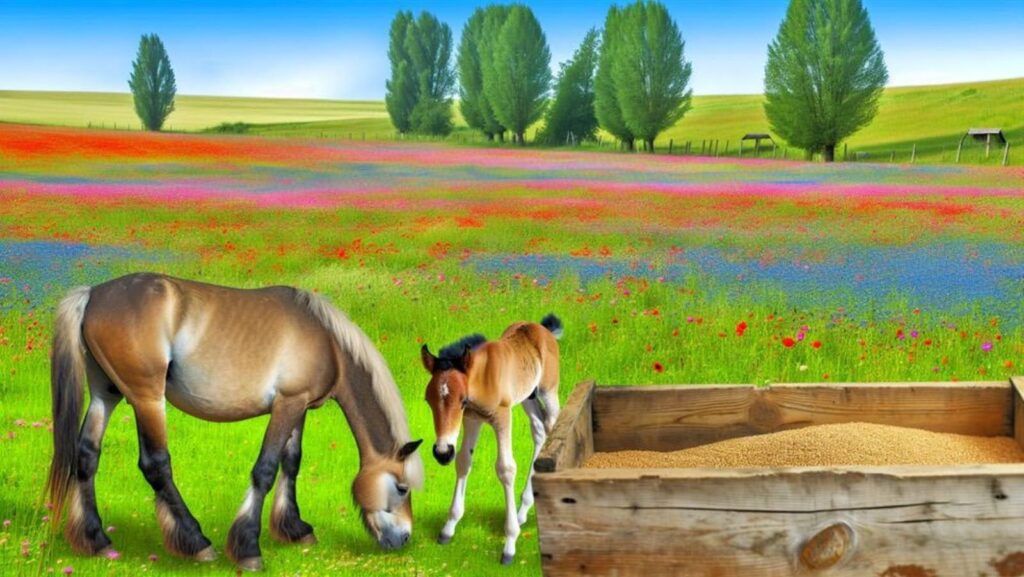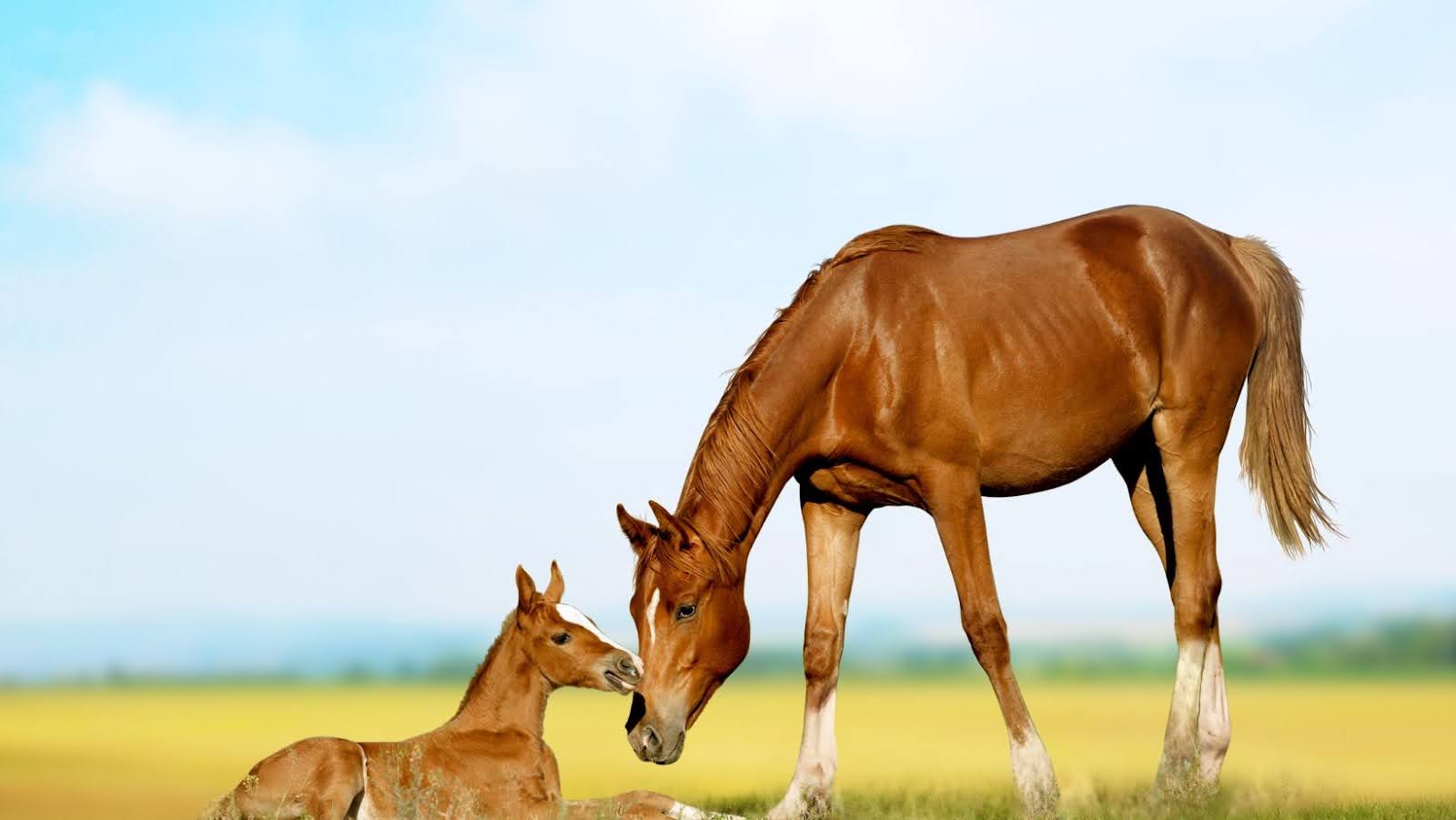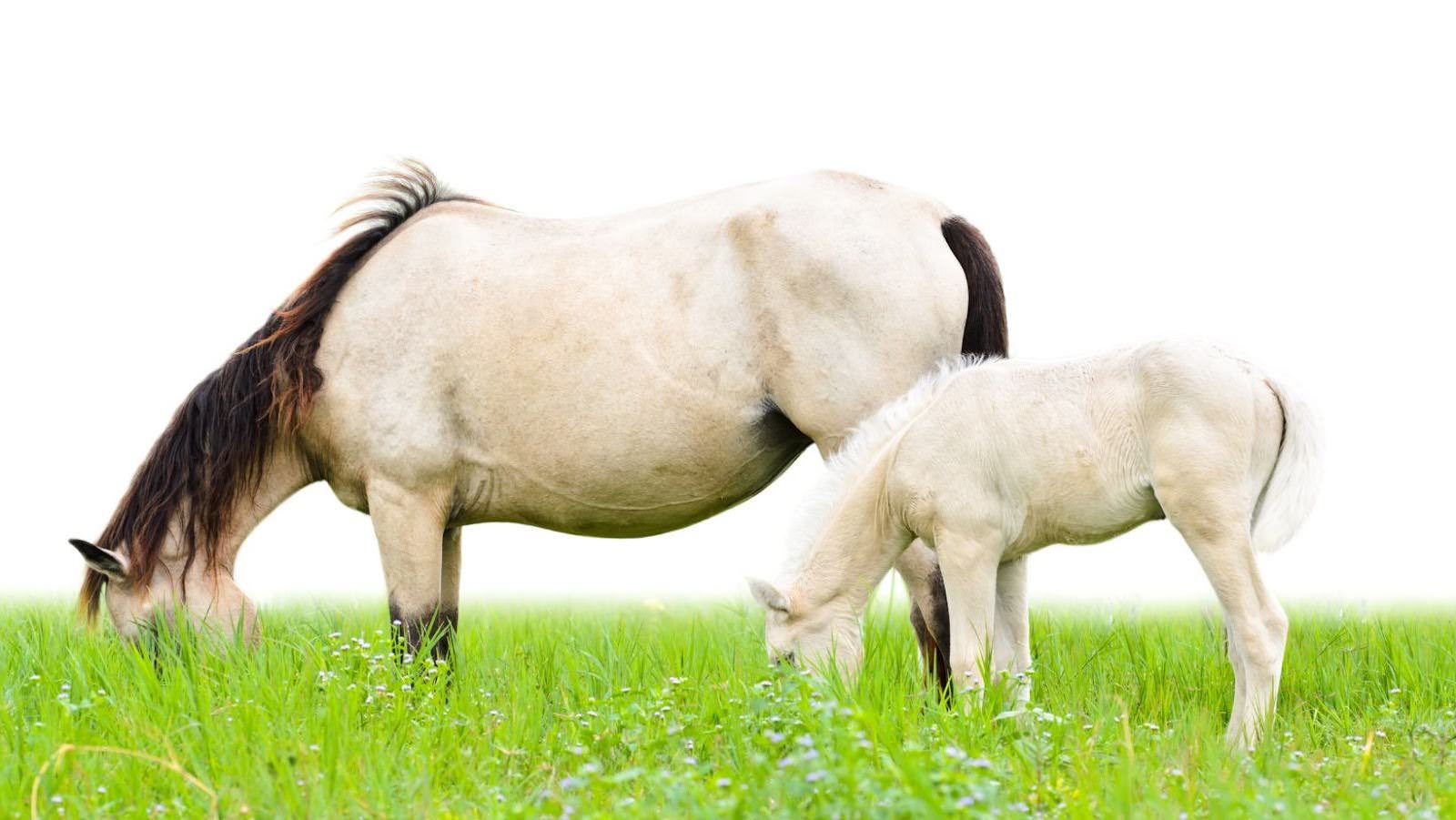Think of a balanced diet for your mare and foal as the cornerstone of a strong, healthy life, much like the foundation of a stable. You need to consider the specific nutritional requirements for both the mare during gestation and lactation and the foal as it grows. It’s not just about adding more feed, but rather about ensuring the right mix of proteins, fibers, vitamins, and minerals. Are you confident you’re meeting these needs effectively? Let’s explore how you can fine-tune your feeding strategy to support optimal growth and development.
Table of Contents
ToggleNutritional Needs of Mares
Understanding the nutritional needs of mares is crucial for ensuring their health and the well-being of their foals. During the gestation period, you must provide balanced nutrition to support fetal development. High-quality forage is essential, but it should be complemented by a formulated feed rich in proteins, vitamins, and minerals. During the last trimester, the mare’s energy requirements increase significantly, so you’ll need to adjust her diet accordingly to prevent deficiencies.
Once the foal is born, the mare enters the lactation phases, which demand even more energy and nutrients. Lactating mares require additional protein to support milk production and maintain their own body condition. Ensuring a diet rich in calcium and phosphorus is vital for both milk quality and the mare’s bone health.
Additionally, you should monitor her intake of trace minerals like zinc and copper, which are critical for the immune function and overall health of both the mare and her foal.
Essential Nutrients for Foals
Foals need a diet rich in high-quality proteins, essential vitamins, and minerals to support their rapid growth and development. Ensuring they receive the right nutrients is crucial for their digestive health and immune support. High-quality proteins are vital because they provide the amino acids necessary for muscle and tissue development. Aim to include sources like milk proteins or soybean meal in their diet.
Vitamins A, D, and E are integral for a foal’s immune support. Vitamin A aids in vision and immune function, while Vitamin D is essential for bone growth. Vitamin E acts as an antioxidant, protecting cells from damage. You should also focus on key minerals such as calcium and phosphorus for skeletal development and iron for red blood cell production.
Providing probiotics and prebiotics supports digestive health by promoting a balanced gut microbiome. A healthy gut is fundamental for nutrient absorption and overall well-being. Omega-3 fatty acids, found in flaxseed, can further enhance immune support and reduce inflammation.
Lastly, regular vet check-ups will ensure your foal’s diet remains optimal. By paying attention to these essential nutrients, you’ll set a strong foundation for your foal’s future health and performance.
Balancing Proteins and Fibers
Achieving the right balance between proteins and fibers in a foal’s diet is crucial for promoting optimal growth and digestive health. Proteins are fundamental for muscle development and overall growth, while fibers support a healthy digestive system.
When selecting protein sources, look for high-quality options such as soybean meal, alfalfa, and linseed meal. These provide essential amino acids necessary for tissue repair and development.
On the other hand, fiber types play a significant role in maintaining gut health and preventing colic. Forage-based fibers like hay and pasture grass are ideal because they promote natural chewing behavior and saliva production, aiding digestion. Additionally, beet pulp and soy hulls can be excellent supplemental fiber sources, offering both digestible fiber and energy.
It’s essential to remember that young foals have different dietary needs compared to adult horses. Their diet should include a higher protein content—around 16-18%—to support rapid growth phases. Meanwhile, fiber levels should be moderate to prevent digestive issues but still high enough to ensure good gut motility.
Vitamins and Minerals
Ensuring an adequate intake of vitamins and minerals is vital for a foal’s growth and overall health, as these micronutrients play key roles in metabolic processes and bone development. Vitamin deficiencies can lead to a range of health issues, including poor growth rates and weakened immune function.
Vitamin A, for instance, is essential for vision and immune health, while Vitamin D is crucial for calcium absorption and bone strength.
Mineral absorption is equally critical. Calcium and phosphorus must be in the correct ratio to support bone development. Imbalances can lead to skeletal abnormalities that could affect the foal throughout its life.
Magnesium, zinc, and copper also play significant roles in enzymatic reactions and connective tissue formation.
To avoid deficiencies, consider a balanced feed specifically designed for mares and foals. These feeds should have the correct levels of vitamins and minerals to support the intense growth phases of a young horse.
Be cautious with supplements; excessive supplementation can disrupt mineral absorption and lead to toxicity. Always consult a veterinarian or equine nutritionist to tailor a diet plan that meets the specific needs of your mare and foal.
Feeding Strategies and Tips
When developing a feeding strategy for your mare and foal horse feeds, how can you ensure that both receive the balanced nutrition they need for optimal health and growth?
First, consider the feeding frequency. For mares, multiple small meals throughout the day can aid digestion and nutrient absorption. Foals, on the other hand, should nurse frequently and have access to creep feed to supplement their diet as they grow.
Hydration importance can’t be overstated. Ensure that both mare and foal have constant access to clean, fresh water. Dehydration affects nutrient absorption and overall health. Mare’s milk provides initial hydration for the foal, but as they start consuming solid feeds, water becomes crucial.
Next, adjust the diet based on the mare’s lactation stage and the foal’s growth phase. A lactating mare needs higher energy and protein levels, while a growing foal requires sufficient calcium and phosphorus for bone development. Monitor body condition scores regularly to tweak their diet as needed.
Lastly, consult with a veterinarian or equine nutritionist to tailor a feeding plan specific to your horses’ needs. Proper feeding strategies and attention to hydration will ensure your mare and foal thrive.
Conclusion
To ensure your mare and foal thrive, you need to balance proteins, fibers, vitamins, and minerals in their diet.
Don’t overlook the importance of consulting with a veterinarian or equine nutritionist for a personalized feeding plan.
By doing so, you’ll support the mare’s milk production and the foal’s growth.
Remember, a scientifically tailored diet isn’t just a theory; it’s a practical approach to fostering optimal health and development in your horses.



